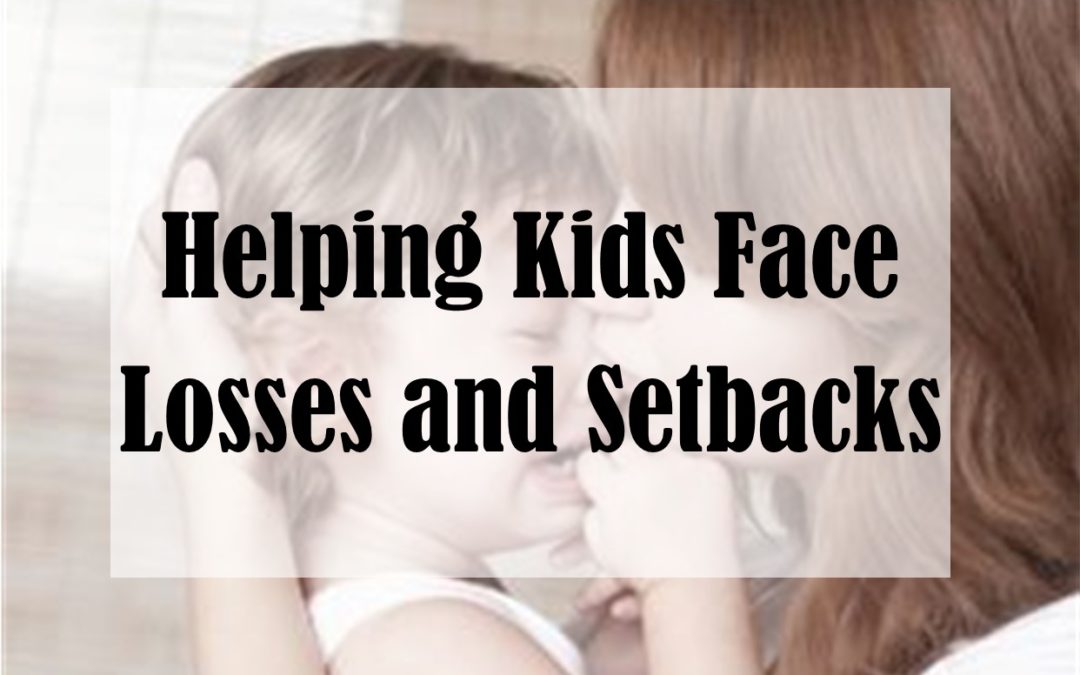One of the most important articles I ever wrote on this blog is my “Tears of Futility” article in which I explained why emotionally healthy children have to find their sadness when they’re disappointed; otherwise they become stuck, and stuck children can become dominating or aggressive; they are difficult to parent. The article was important because it counters the cultural obsession with “happiness”; parents need to know that healthy children can be sad sometimes. It was also important because a few months after I wrote it, COVID hit.
The insights I shared there were drawn from a lecture series I attended with Dr. Gordon Neufeld. His vision of frustration, futility, and emotional healing empowers parents to lead their kids through any kind of disappointment or setback. In the last few years, our kids have faced many of those.
Here’s a recap of the ideas I laid out in that article.
Futility and Emotional Maturity
Our children become frustrated about many things in their lives.
- They may not like our rules, limits, or boundaries.
- They may want to sit in the front seat of the car when they’re too small.
- They may want ice cream for dinner instead of salmon.
- They may receive a lower grade on a test than they expected.
When things don’t go the way they desire or expect, kids (like grown-ups) get upset. They may even cry. This isn’t a sign that you are a bad parent or need to do anything differently.
Now, sometimes we can reasonably adjust things so they work better for our child. Maybe we let him wear cotton pants instead of polyester because the polyester irritates his legs. Or we give him his bath in the morning instead of at night because he likes to play checkers with Dad before bed. In these situations, we decide to remove an avoidable frustration because it’s reasonable. But in the bulleted examples above, we can’t really change anything to work better for the child.
What needs to change is our child, not the options in front of him. He needs to find his tears of futility.
Tears of futility are tears of adaptation; they help us face loss or disappointment that we can’t change. (For small children, these are real physical tears; for older kids, teens, and grown-ups, we just need to experience our sadness, though sometimes we have real tears, too.) These are tears of transformation and they help us mature. The tears help us let go and move on. We learn that we can survive small and big losses and disappointments. (Tears of futility are different from tears brought on by abuse, abandonment, etc. Not all tears help us grow up.)
A Small Piece in a Divine Puzzle
Understanding frustration, futility, and maturity helped me see my children with new eyes. I began to feel less anxious when they bristled, grimaced, or cried over a rule, failure, or setback. As parents, part of our role is to hold our children in this futility so they can survive what feels too big for them. Neufeld says parents must be “the agents of futility but the angels of comfort”; we can’t save our children from the futility, and often we are required to help our children face it when they resist it, which can be quite unpleasant. But we also have the best arms for holding and catching them. When the loss is very big for the child, like the death of pet, leading the child through his frustration and sadness is a delicate art requiring attention and sensitivity.
Recently, a few of my children have faced difficult setbacks related to COVID-19. I am grateful that I had some of these insights in my back pocket. I’ve been able to help my kids work to change what could be changed, and let go of what could not be changed.
Some folks would point out that the idea of futility is too limited; that sometimes our kids resist because they’re filled with pride or selfishness. And that would be a fair criticism. Secular developmental psychology can help us understand our children, but it’s never enough to understand human nature completely. It will provide a few pieces of what is really much larger divine puzzle. Our fallen human nature is definitely a reality that secular theories ignore or aren’t capable of handling. We can never fully understand what it means to live vibrantly, what it means thrive, without having a model of perfection, without a consideration of what is true, good, and beautiful. These are critical pieces of the puzzle.
Another critical piece of the puzzle: GRACE. Without grace, our children can never be fully transformed. Without faith, they can’t see clearly. Their vision of who they are, where they’re going, and why they’re here will be blurred and maybe even warped by whatever fad, habit, or obsession they make their god (because every human has a god whether they are aware of it or not). With faith, they are able to see their losses in the context of the Cross and the Resurrection.
So, sure, these ideas in secular developmental theory have their limitations. Yet, I’m still filled with gratitude for the wisdom I’ve gained through Dr. Neufeld’s paradigm. Only when I see the eyes of Christ will I see with perfect clarity, but I do think Dr. Neufeld has helped me see my kids better.
Resources
Kids Need All Their Feelings to Grow Up


